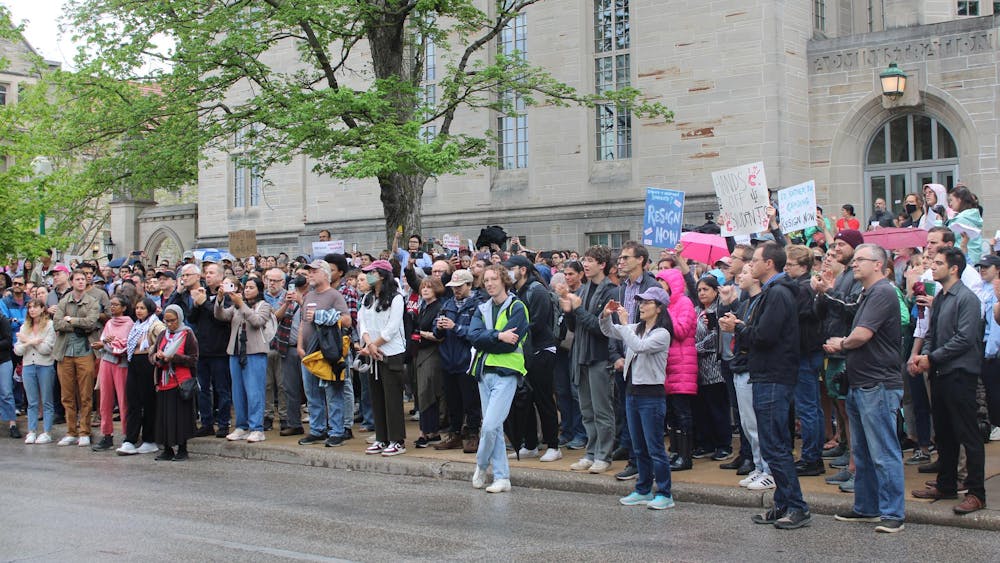Sponsored by the Black Film Center/Archive in partnership with the Media School and the IU Cinema, “From Cinematic Past to Fast Forward Present: D.W. Griffith’s ‘The Birth of a Nation’ — A Centennial Symposium” is a two-day symposium centered on the film.
“This is not a celebration,” said Michael Martin, director of IU’s Black Film Center/Archive, in a recent press release. “The film is not being shown for entertainment purposes but rather as an educational tool that both reflects on the past and resonates today in regard to race relations.”
The event was designed to explore the film’s legacy as well as its relevance in contemporary culture.
Seth Mutchler, a house manager at the IU Cinema, was responsible for coordinating the event.
Mutchler said while the film’s content is racist, misogynistic and generally difficult to digest, looking at the ugliest moments of the past is what being part of a responsible history is all about.
“It would be very convenient to brush this movie under the rug and to forget that it exists, but I think that it is very important to examine this film and to look at its cultural and historical and social impact,” Mutchler said.
While he said the value of showing the movie in isolation would be questionable, Mutchler said the additional platforms for discussion included in the symposium provided audience members with important contextual information.
“This film is very troubled,” Mutchler said. “There are a lot of issues and things we don’t want to talk about, but we have to talk about because if you don’t look at history, you’re doomed to repeat it.”
Brenda Amwayi, a senior public management student and member of the African Student Association, did not share Mutchler’s views on the film.
“This film doesn’t educate students on what it means to be African American, nor does it resonate with the problems we are having in universities, police brutality and the prison system,” Amwayi said. “A conversation needs to happen, but this is not the right educational tool.”
Amwayi said considering the constant brutality, degradation and demonization of African Americans in the media, screening a movie such as “Birth of a Nation” does little more than reiterate the presence of an obvious problem.
While addressing the harsh realities of history is a necessary part of developing more cohesive race relations, Amwayi said she would like to see more discussion about the positive aspects of African Americans.
Discussions should be focused specifically on history and culture, Amwayi said.
Amwayi said there are more effective ways to have a conversation, such as more concentrated reflection on the problems African Americans face in society today.
By only discussing the victimization and subjugation of black people, Amwayi said Americans — of all races and ethnic backgrounds — are left with a limited understanding of what it means to be African American.
Amwayi said a good alternative would be to show content that would challenge people’s preconceived ideas of African Americans.
“We don’t talk enough about our accomplishments.” Amwayi said. “Considering how far we have come as a race and all of the achievements that have been made along the way, there is plenty to talk about.”





